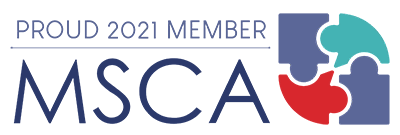Montessori Theory
The Maria Montessori Theory is an educational approach that emphasises individualised instruction and self-paced learning. It is based on the belief that children are naturally curious and capable of learning independently. Maria Montessori developed the Montessori method; she believed that education should be tailored to each child’s unique needs and interests. An approach that has been shown to promote children’s academic success and social-emotional development. The Montessori Theory is now used in schools worldwide, and its popularity is growing as parents seek alternative educational options for their children.
Traditional education models tend to group children based on age and treat them as though they are all at the same developmental stage. In contrast, Montessori education recognises that children develop at different rates and strives to meet each child where they are. As a result, classrooms are designed to allow children of different ages to interact and learn from one another. This model also emphasises hands-on learning, allowing children to explore and discover new concepts in a way best suited to their individual learning styles. As a result, Montessori education tends to be more flexible and responsive to the needs of each child.
Who was Maria Montessori?
Dr Maria Montessori was an Italian educator and physician who developed the Montessori method of education based on her observations of children’s natural learning abilities.
Maria Montessori was born in 1870 in Chiaravalle, Italy. She studied medicine at the University of Rome and became the first woman to graduate with a medical doctorate. After working as a doctor for several years, she began to study child development and education. It surprised her when she observed that children’s behaviour exceeded her expectations in specific environments where their developmental needs were nurtured. Motivated by her findings, she opened her first Montessori school in 1907, and over the next few years, she continued to develop her educational methods. Montessori education gained popularity in the 1920s, and by the end of her life, Maria Montessori had established schools on six continents.
Maria Montessori’s accomplishments include founding the Association Montessori Internationale (AMI) in 1929 with the help of her son Mario. AMI is a non-profit organisation dedicated to the integrity of Dr Montessori’s work and supporting its educational philosophy. She also wrote many books on her educational methods, which helped spread her ideas to a broader audience. In addition, she lectured extensively on education and even served as an adviser to the Italian government on educational reform. She was also nominated for the Noble Peace Prize for three consecutive years.
Maria Montessori’s work profoundly impacted education, and she is considered one of the most influential educators of all time.
Maria Montessori Theory – Key Principles of the Montessori Method
The Montessori Theory is based on guiding principles, which include:
- Independence
- Order
- Choice
- Freedom
- Mixed age range
- Movement
- Control of error
- Materials
- Role of the adult
One of the key things that sets Montessori apart is the classroom environment. As a result, this plays a pivotal role in supporting the program’s guiding principles. Montessori classrooms are designed to be highly supportive of independent learning and exploration. The furniture is child-sized, and everything is within easy reach. There are plenty of interesting materials to explore, and the activities are carefully curated to promote learning. In a Montessori classroom, children are free to move around and choose their activities within certain limits. This allows them to follow their natural interests and learn at their own pace. As a result, they’re more engaged and motivated whilst developing a strong sense of self-direction. All of this supports the development of essential life skills like creative problem-solving and critical thinking.
The Four Planes of Development
Montessori education emphasises four planes of development, which are spaced roughly evenly throughout a person’s young life.
- The first plane begins at birth and extends to around age six (absorbent mind). This is a critical time for physical and psychological development, as children are rapidly growing and learning.
- The second plane runs from around age six to twelve when children enter adolescence. A time for exploration through increased intellectual activity and social development (reasoning mind).
- The third plane extends from adolescence to young adulthood (humanistic mind), when people develop their identities and an understanding of humanity.
- Finally, the fourth plane encompasses mature adulthood (specialist mind), a time when the focus is on identifying their place in the world.
Each of these planes has unique challenges and opportunities, and the Montessori Theory helps individuals navigate them all.
Learn more Montessori
Maria Montessori’s Theory has been used in schools for over 100 years with great success, and Rockingham Montessori School is proud to offer this program to our students. If you’re interested in learning more about how your child can benefit from Montessori education, please visit our website or contact us. We would be happy to answer any of your questions and discuss how we can help your family succeed educationally.
